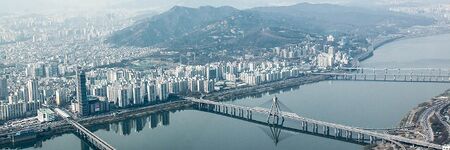Seoul Korea
Jump to navigation
Jump to search
- Members
Seoul officially the Seoul Special City, is the capital and largest metropolis of South Korea. Seoul has a population of 9.7 million people, and forms the heart of the Seoul Capital Area with the surrounding Incheon metropolis and Gyeonggi province. Considered to be a global city and rated as an Alpha – City by Globalization and World Cities Research Network (GaWC), Seoul was the world's 4th largest metropolitan economy in 2014 after Tokyo, New York City and Los Angeles. International visitors generally reach Seoul via AREX from Incheon International Airport, notable for having been rated the best airport for nine consecutive years (2005–2013) by Airports Council International.
Activities

|
Estimation of De Facto Population | |
Key Deliverables
| ||

|
IoT and AI based Smart Energy Management System for Smart City | |
| IoT & AI based Smart Energy Management Platform was deployed in public buildings in Suwon City to provide optimal management building facilities, environment, and energy using the urban 3D map and 3D spatial modeling. With the M&V (Measurement & Verification) engine using a standard algorithm, IPMVP (International Performance Measurement and Verification Protocol) as well as data intelligence technology with deep-learning, the platform can quickly measure energy performance and determine energy efficiency. | ||

